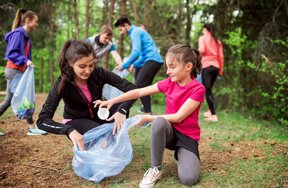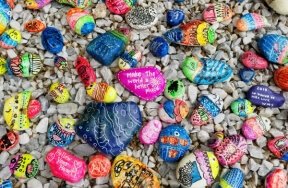If you’ve ever watched the show Friends, you probably remember that Chandler and Joey kept a chicken and a duck as pets in their New York apartment. Now, the city is NOT the place for a duck – ducks prefer to be waddling around inside, sleeping in the sunshine and paddling on a crystal-blue lake with their duck friends. But if you ever find yourself having to take care of a duckling like Chandler and Joey did, we’ve got some tips for you.
Steps
Make sure heat lamps are secured and the area is large enough for the ducklings to get closer if they are cold and further away if too warm.
Ducklings that sleep together in a clump are too cold or if they have their mouths open (panting like a dog) they are too hot.
Feed game bird starter, chick starter , or a commercially prepared waterfowl starter for the first 4-6 weeks. Never feed medicated chick starter or poultry feed, as this is fatal to your ducklings. Also anything moldy is fatal to your ducks of all ages! Bread, although thought of as the ideal "duck food," is also dangerous to ducklings, because it expands in their crop and chokes them.
Bread should never be fed to ducks of any age, especially those in parks and ponds. Use a plastic or galvanized feeder. Always provide clean, fresh drinking water. Use a shallow bowl to which you have added a few clean, small pebbles. This will prevent the ducklings from drowning.
You can also put clean pebbles in a store bought waterer if it is too deep ducks need to be able to submerge their heads to clear their sinuses. Do not let them swim unattended. They must be able to get out of the water quickly. Ducklings can and will drown if they get too wet or too cold.
Ducklings will eat on their own immediately. You can add a small amount of sugar in their water for the first couple of days to help them get off to a good start.
Learn that ducklings should be fully feathered before allowing them to swim. Depending on the type of duck, full feathers should be in place by 9-12 weeks of age.
Know that if you have other adult ducks in your pond/water source, be advised the older adult ducks can be fatal to your younger ducks. Older ducks may drown the younger ducks.
Tips
Warnings
Things You'll Need
Related Stories






























